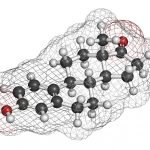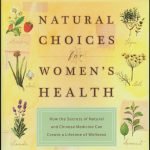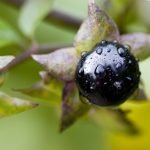Optimal Threshold of Cardiac Troponin I Concentration for Risk Stratification
Node Smith, ND
High Sensitivity Cardiac Troponin I Testing to Determine Likelihood of Current and Future Cardiac Events
A global study on the use of high-sensitivity cardiac troponin I testing in the evaluation of patients with chest pain offers a definitive threshold for determining likelihood of current and future cardiac event.1 The current use of high-sensitivity cardiac troponin I uses a threshold of 5 ng/L to place patients in a low risk category, however the optimal threshold has been undetermined, meaning patients with a troponin level under 5 ng/L are often kept under observation. The purpose of the current study was to look at a large enough sample to determine whether patients with a troponin under 5 ng/L could be considered low risk enough to warrant discharge. The results of the study were favorable to this effect and there has been a call to revise current acute coronary syndrome screening guidelines and protocols.
Troponin I Study
The study looked at 104 articles from 9 different countries. The meta-analysis included 22,457 patients with a mean age of 62 years, 41.5% women who were admitted to the hospital with concerns of acute coronary syndrome. It was found that in 49% had troponin I concentrations of less than 5 ng/L at the time of presentation (11,012 patients). Of this number, there were 59 patients who were indeed having a myocardial infarction, and 1 patient who had a cardiac event within 30 days. There were no cardiac deaths at 30 days of any patients presenting with troponin I concentration of under 5 ng/L. The negative predictive value of a 5 ng/L threshold for high-sensitivity troponin I was calculated to be 99.5%. The negative predictive value for cardiac death up to a year was 99.9% (there were 7 deaths within a year – all after 30 days – within sub-threshold group).
A Call to Revise Current Guidelines has been Issued
The conclusion of the study is that “among patients with suspected acute coronary syndrome, a high-sensitivity cardiac troponin I concentration of less than 5 ng/L identified those at low risk of myocardial infarction or cardiac death within 30 days.” The clinical utility and cost-effectiveness of this approach to risk stratification is still under investigation, however, a call to revise current guidelines has been issued.
Source:
- Chapman AR, Lee KK, Mcallister DA, et al. Association of High-Sensitivity Cardiac Troponin I Concentration With Cardiac Outcomes in Patients With Suspected Acute Coronary Syndrome. JAMA. 2017.
Image Copyright: <a href=’https://www.123rf.com/profile_molekuul’>molekuul / 123RF Stock Photo</a>
 Node Smith, ND, is a naturopathic physician in Portland, OR and associate editor for NDNR. He has been instrumental in maintaining a firm connection to the philosophy and heritage of naturopathic medicine among the next generation of docs. He helped found the first multi-generational experiential retreat, which brings elders, alumni, and students together for a weekend camp-out where naturopathic medicine and medical philosophy are experienced in nature. Four years ago he helped found the non-profit, Association for Naturopathic ReVitalization (ANR), for which he serves as the board chairman. ANR has a mission to inspire health practitioners to embody the naturopathic principles through experiential education. Node also has a firm belief that the next era of naturopathic medicine will see a resurgence of in-patient facilities which use fasting, earthing, hydrotherapy and homeopathy to bring people back from chronic diseases of modern living; he is involved in numerous conversations and projects to bring about this vision.
Node Smith, ND, is a naturopathic physician in Portland, OR and associate editor for NDNR. He has been instrumental in maintaining a firm connection to the philosophy and heritage of naturopathic medicine among the next generation of docs. He helped found the first multi-generational experiential retreat, which brings elders, alumni, and students together for a weekend camp-out where naturopathic medicine and medical philosophy are experienced in nature. Four years ago he helped found the non-profit, Association for Naturopathic ReVitalization (ANR), for which he serves as the board chairman. ANR has a mission to inspire health practitioners to embody the naturopathic principles through experiential education. Node also has a firm belief that the next era of naturopathic medicine will see a resurgence of in-patient facilities which use fasting, earthing, hydrotherapy and homeopathy to bring people back from chronic diseases of modern living; he is involved in numerous conversations and projects to bring about this vision.









